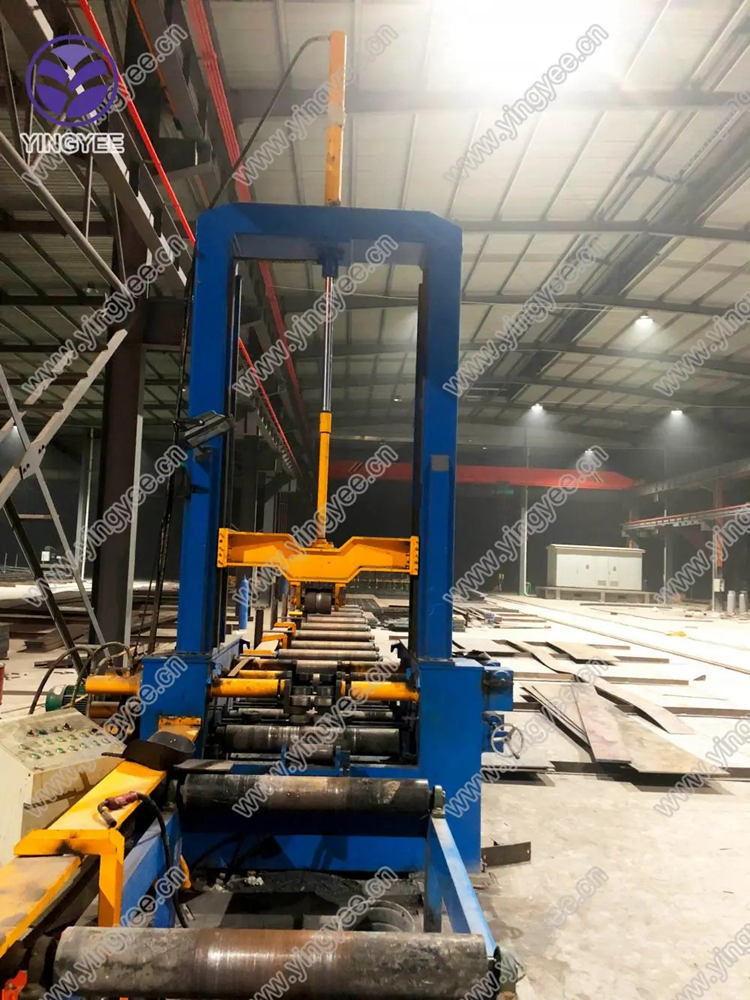
Understanding Cable Tray Roll Forming Machine Prices
In the realm of modern construction and electrical installations, cable trays play an essential role in organizing and supporting electrical cables and wiring systems. As demand for efficient electrical management solutions grows, the need for cable tray roll forming machines has surged. These machines are vital for manufacturers producing cable trays of various shapes and sizes, ensuring that they meet industry standards and client specifications. However, potential investors and manufacturers often find themselves questioning what influences the price of cable tray roll forming machines?
Factors Influencing Pricing
1. Machine Specifications The price of cable tray roll forming machines can vary significantly based on their specifications. This includes the capacity, the thickness of the metal material it can handle, and the types of cable trays that can be produced. Advanced machines with higher production capacity and the ability to manufacture a diverse range of cable tray profiles typically come with a higher price tag.
2. Technology and Features Modern roll forming machines often come equipped with advanced technology, such as automatic feeding, digital controls, and real-time monitoring systems. Machines that incorporate sophisticated features like automation and integration with CAD (Computer-Aided Design) software for seamless design processes generally cost more due to the complexity and innovation involved.
3. Material and Construction Quality The materials used in the construction of the machine itself affect the price. A robust design with high-quality steel components ensures durability and longevity, which can be a worthwhile investment in the long run. Comprehensive warranties and support from the manufacturer can also justify a higher price point.
4. Brand Reputation Established manufacturers with a solid reputation in the industry often charge more for their machines due to their commitment to quality and customer service. Buyers tend to favor these brands for their reliability and after-sales support, which can reduce long-term operational costs.

5. Market Localization Prices can vary depending on your geographic location. Machines manufactured in regions with high labor costs may be priced higher than those produced in countries with lower manufacturing costs. Additionally, local regulations and import tariffs can affect pricing for imported machines.
6. Customization Requirements If a buyer requires a custom-built machine tailored to specific production needs, this will add to the overall cost. Customization can involve alterations in machine size, shape, and the inclusion of specialized components, making the investment substantial.
7. Supporting Equipment Often, manufacturers may require ancillary equipment such as de-coilers, stackers, and conveyors to optimize production. The inclusion of these additional systems can lead to a more significant upfront investment.
Price Ranges
While it is challenging to set a precise price range due to the factors mentioned above, cable tray roll forming machines can typically cost anywhere from $20,000 to over $100,000. Basic models aimed at smaller production needs may be at the lower end of the spectrum, whereas high-capacity, fully automated machines can reach or exceed the upper limits.
Conclusion
Investing in a cable tray roll forming machine is a critical decision for manufacturers looking to enhance their production capabilities. Understanding the various factors that influence the price is essential for making an informed decision. By analyzing specifications, technology, material quality, and brand reliability, buyers can choose a machine that not only meets their operational needs but also offers value for their investment. As the market for cable management solutions continues to expand, the right equipment will undoubtedly play a vital role in future-proofing manufacturing operations.